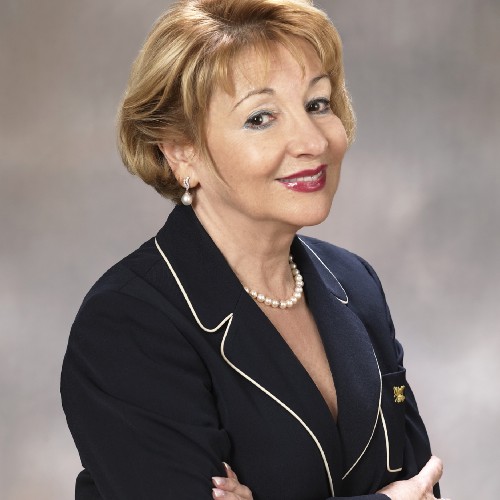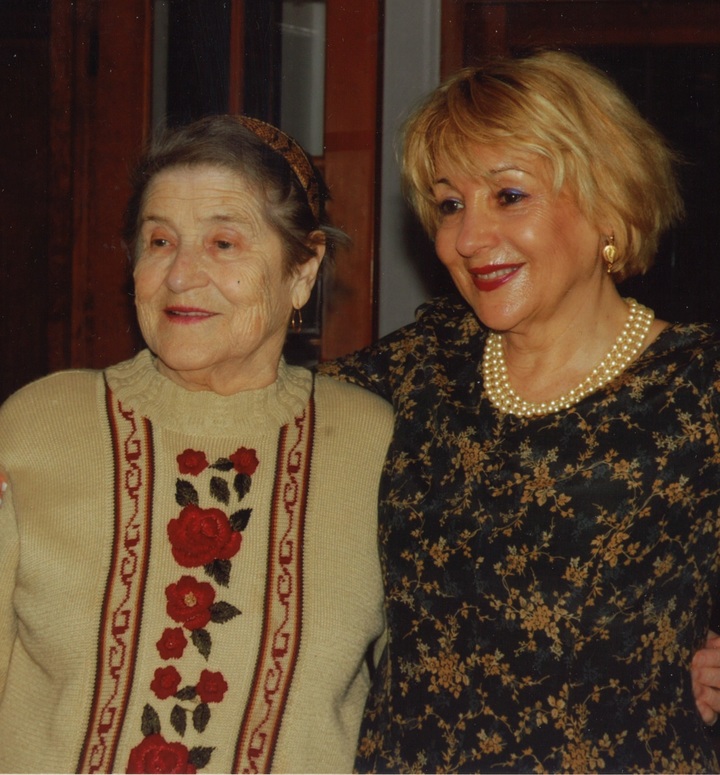How Strong Mother Defined My Life
My mother never seemed to be happy with me—not even when people called me a model girl – because I took after my father in appearance and character. Not when I made the grades in school – because all you needed for it was to try harder, no big deal. Not when I excelled at the University – because majoring in English appeared insignificant compared with Medicine or Sciences which she respected most. I knew I scored higher after defending my doctorate and getting full professorship – because she gave me an emerald ring-and-earrings set to mark the achievement, but not a word of praise. I was longing for her hard-to-get approval my entire life.
Thinking back, I believe it was my mother who defined my life and preconditioned me for emigration, as she unwittingly molded my character like they do it with steel, applying heat and cold treatments in turn, until qualities such as hardness and strength appear.
How did it work?
How Sparing the Rod Works
Never a spoiled child, I was born a splitting image of my father: sensitive and sentimental, open and optimistic. As if to alleviate that, my mother stuck to the time-honored discipline not allowing us kids deviate from her canons: task or homework first (with mathematics and sciences before literature and English); restricted time for playing; home chores included plucking chickens, a hateful must-do; no ice cream whatsoever, to avoid cold, and such. Rod wasn’t applied; mostly, the silent treatments she reserved for punishment worked hard on me. I remember how once mom came over to my bed to give me, half-asleep, a kiss—and I burst into tears, overwhelmed: displaying such warm emotions was not our family custom. What I took away from my early years was that “crime” is always followed by punishment, and, by extension, that everything has consequences, so think before you leap. I tried. I learned to keep my sensitivity to myself, veil my openness with some caution, and check natural optimism with experiential know-how. Good for me? A good question!
“Crime” had a broad meaning in our home. First, my obsession with books was near-crime: reading for pleasure before doing homework (the book conveniently open in my desk drawer that could be quickly shut at the first sign of mom’s inspection); or reading in bed; or even worse, reading at night under the blanket, with a flashlight. Second, my occasional “B’s” were next-to-crime—and subject to investigation! I remember how in the 2nd grade my mom stood behind the classroom door, to make sure I spoke loud enough, because my teacher complained I mumbled in too soft a voice. I certainly made great strides to speak louder—and kept on trying, remembering mom’s promise to come check on me periodically. That served as a huge push for my speaking skills: I practiced enunciation and “expressive reading” at home, like actors do, and before long the literature teacher started selecting me to read extracts from poetry/prose in front of the class. When enacting the literary heroes, I learned to grab everybody’s attention and lead by the voice: it gave me the first taste of inclusive leadership; my classmates and I shared tears and triumphs of the heroes we followed together. It was a transformative experience.
Later, I was still called to perform on a school stage, act on a University stage in a Oscar Wilde play, then on many conference stages, and years later, on corporate stages, podcasts, online summits, radio and TV interviews, etc. Feeling the power of your voice and your ideas getting traction is something special: it’s about impact and responsibility. And for me, it started with imagining my mother—my strictest critic of all—listening to me from behind the classroom door, assessing my performance.
Never a spoiled child, I always performed to her silent applause.
Mothering Across Cultures
My mom was a Tiger Mother long before this word-combination became common. It’s more typical of the foreign than native-born American women. Thus, from many immigrant women I interviewed for my upcoming book, I learned that tiger-mother-ism, or pushing kids to aspire/reach higher, is a distinctive cultural trait. Irene Natividad from the Philippines, Irmgard Lafrentz from Germany, Elena Gorokhova from Russia, and many others – all had strong demanding mothers leading by example and holding them to the highest standards, which have been big factors of their success.
A cradle-to-grave care of the kids is something that we as adults on a receiving end often consider excessive or frustrating, or both. But look at it from another side of the aisle: the devoted mother’s side. She’s convinced it’s her sacred duty to make sure her child realizes his/her potential to the fullest—and this demanding-and-caring trait is handed down the generations. A case in point: although growing up in silent opposition to my mother’s pressures, I displayed much of the same attitude to my own daughter Helen—only to see her developing the obstinate opposition to me; I persisted anyway, like I’ve been programmed for it. Will Helen continue in the similar vein with her daughters, Anna and Maggie (pictured)?

Mother Is a Verb, not a Noun
Don’t you think “mother” is not only a noun but also a verb? Used in excess or in moderation, “mothering” is an in-built capacity that one cannot get rid of, like a leopard cannot change its spots. What we can do is to be more aware of its pros and cons—and try to control selves when we want to control children.
Anyway, I believe that whatever roads daughters take, they all lead to their mothers, and sooner or later we start quoting them. I’ve finally grown up to do so too. Not sure I’ve acquired more wisdom with years, but today I love my late Mom more than ever before. Just thinking of her makes me feel better.
Originally published at www.huffingtonpost.com


